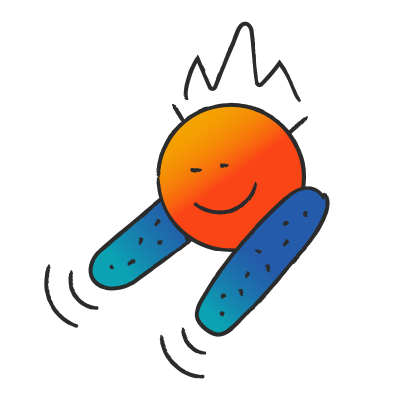
Automation Developer – Specialized AI Professional
With almost every company out there working with physical or virtual documents, intelligent document processing has unlimited potential. At the same time, every project involving structured and unstructured data is unique because of aspects like the format of the inputs and the type of data to be extracted. This is why it requires a specific skillset from Automation Developers and unique Artificial Intelligence capabilities, needed to create automation projects which process unstructured communications data, digitize and classify documents, as well as extract and process data from them.

The responsibilities are the same as for a non-specialized Automation Developer – see them below. It's just that they apply to automation projects involving intelligent document processing.
Work with the Solution Architect and the Business Analyst to sign off on the business automation and technical requirements.
Contribute to the automation solution designs.
Develop automation projects and components according to the solution design and the requirements.
Adhere to the development methodologies and best practices.
Test the code units and work with the Tester and the Test Automation Engineer for the other testing stages. Fix the bugs identified in the process.
Participate in production deployment, hypercare, and monitoring.
Create the technical documentation for the automations developed, according to the best practices.
Review code written by peers and facilitate knowledge transfer.
Non-specific:
Robotic Process Automation (RPA) and business automation.
The UiPath Automation Implementation Methodology.
In-depth knowledge of the Automate pillar of the UiPath Platform: Studio, Apps, Integration Service, Robots, Action Center, and Data Service.
In-depth knowledge of UiPath Orchestrator
UiPath templates e.g., the UiPath Robotic Enterprise Framework.
UiPath solution accelerators, available on the UiPath Marketplace.
Specific to Specialized AI:
Artificial Intelligence and Machine Learning general concepts.
Ability to differentiate Specialized AI from Generative AI, and knowledge of how each can be used.
In-depth knowledge of UiPath Communications Mining.
The Specialized AI skillset comes on top of the Automation Developer core expertise. So, start as an Automation Developer, get the Associate certification and start implementing automation projects. Once you feel in control of those, go towards Specialized AI.
If you aren’t familiar at all with Automation Developers, these typically come from tech-savvy individuals with a good understanding of the basic programming concepts and ideally 1-2 years of experience as a software engineer or education in computer science. Being a role closely tied to business, analytical thinking and problem-solving are crucial.
As a specialization, Specialized AI Professional doesn't have seniority levels. However, depending on the seniority as an Automation Developer, the Specialized AI Professional skillset can be put to better use in more complex projects involving digitized documents.

If you’re new to UiPath automation development and aim to become a Specialized AI practitioner at professional level, follow this structured learning path to advance towards the professional level:
Foundation in Coding Concepts: Begin with a course on coding fundamentals. While C# or VB.NET are ideal, you can also explore languages like Python or Java. Although UiPath Academy doesn't currently offer these courses, you can find suitable ones through research based on your interests and current expertise.
The Specialized AI Associate Training: Develop the skills required to work with other developers in business automation scenarios, particularly in Intelligent Document Processing.
The Specialized AI Associate Certification: Demonstrate your expertise by obtaining the first Specialized AI Associate certification.
The Specialized AI Professional Training: Advance your skills and knowledge to progress towards becoming a Specialized AI Professional.
The Specialized AI Professional Certification: Showcase your proficiency in automation with AI by achieving the Specialized AI Professional certification
Congratulations, you’re already ahead! To further advance to become a Specialized AI practitioner at professional level follow these steps:
Complete the Specialized AI Associate Learning Path.
Complete the Specialized AI Professional Learning Path.

